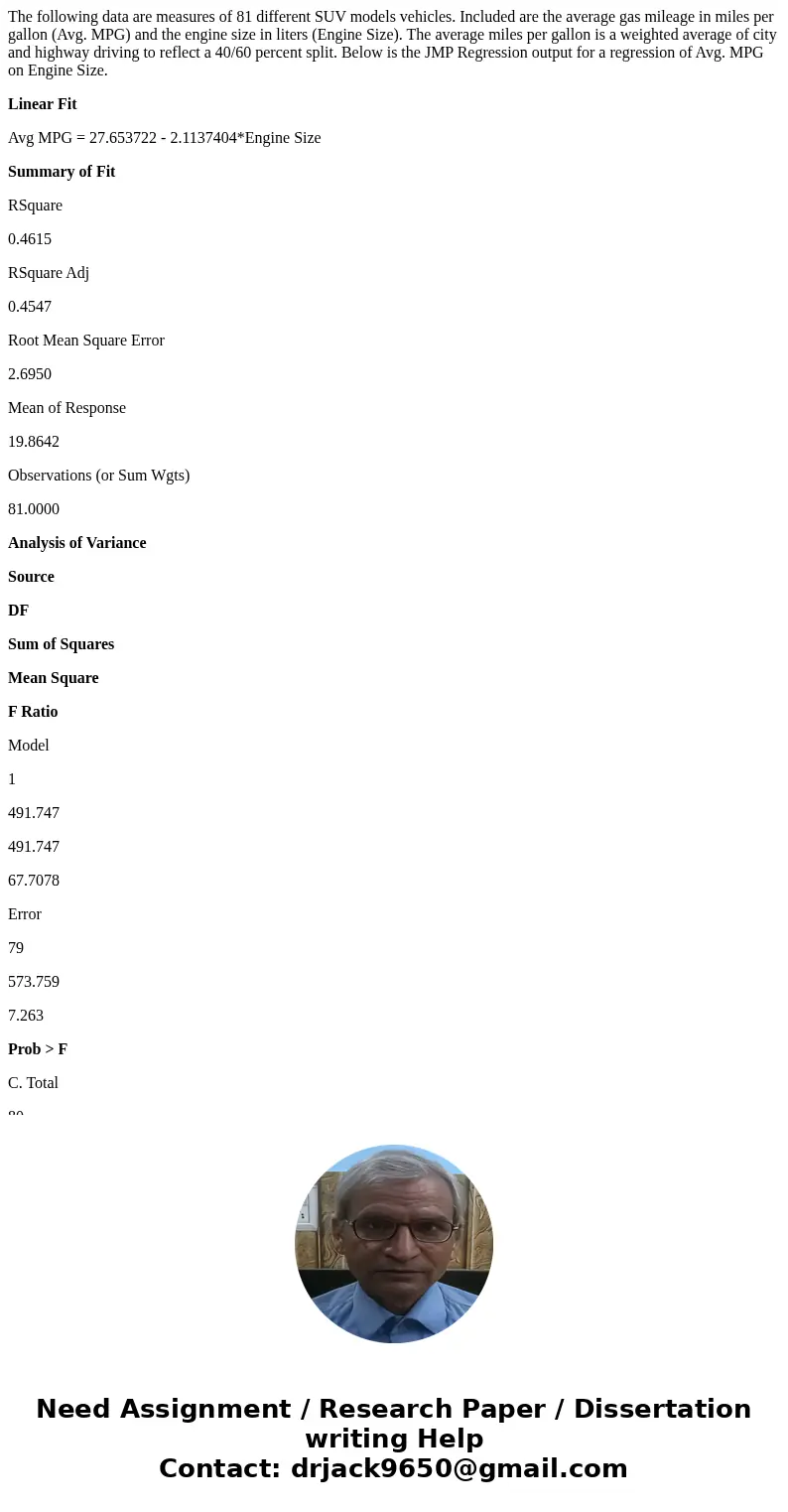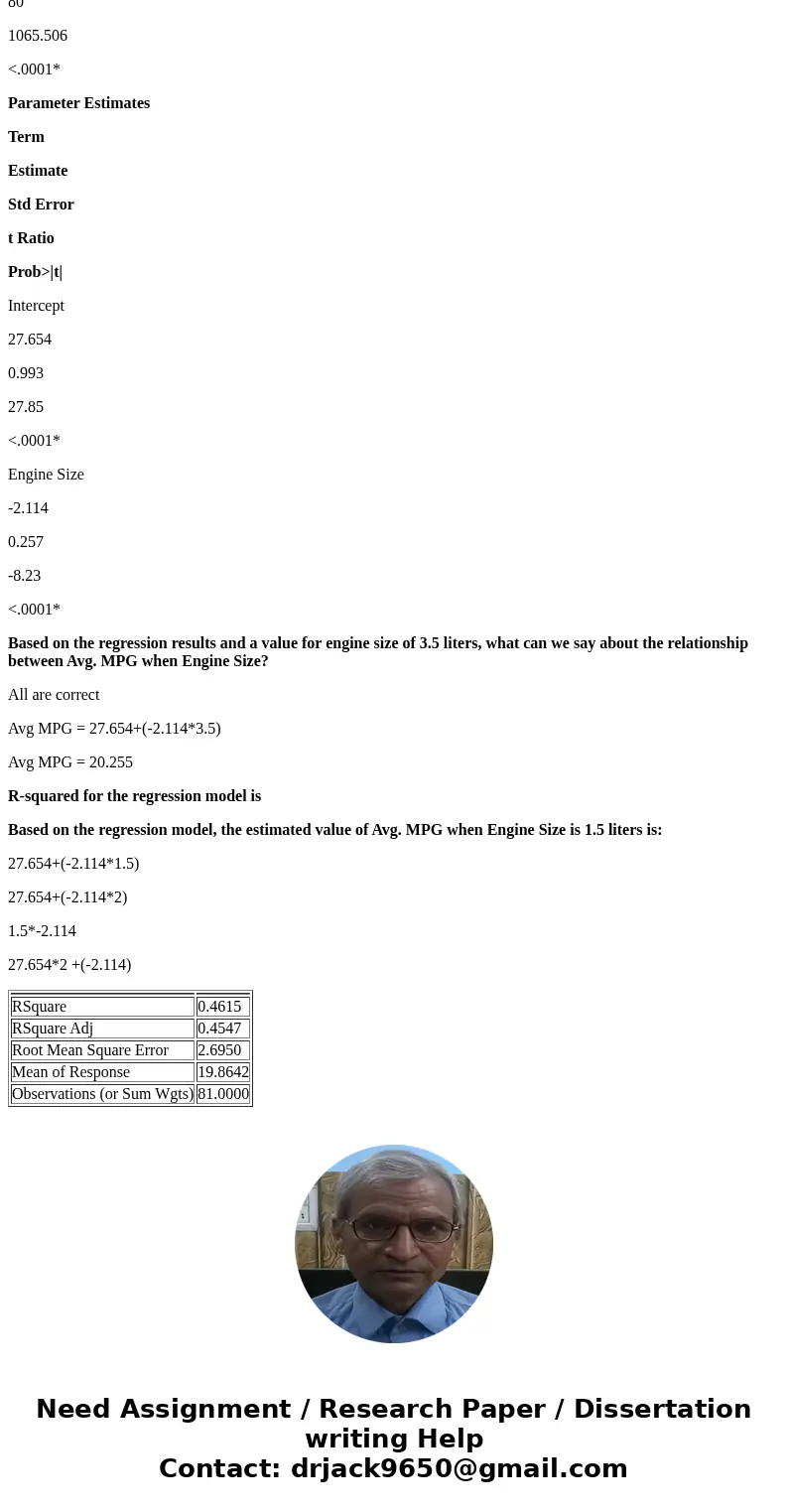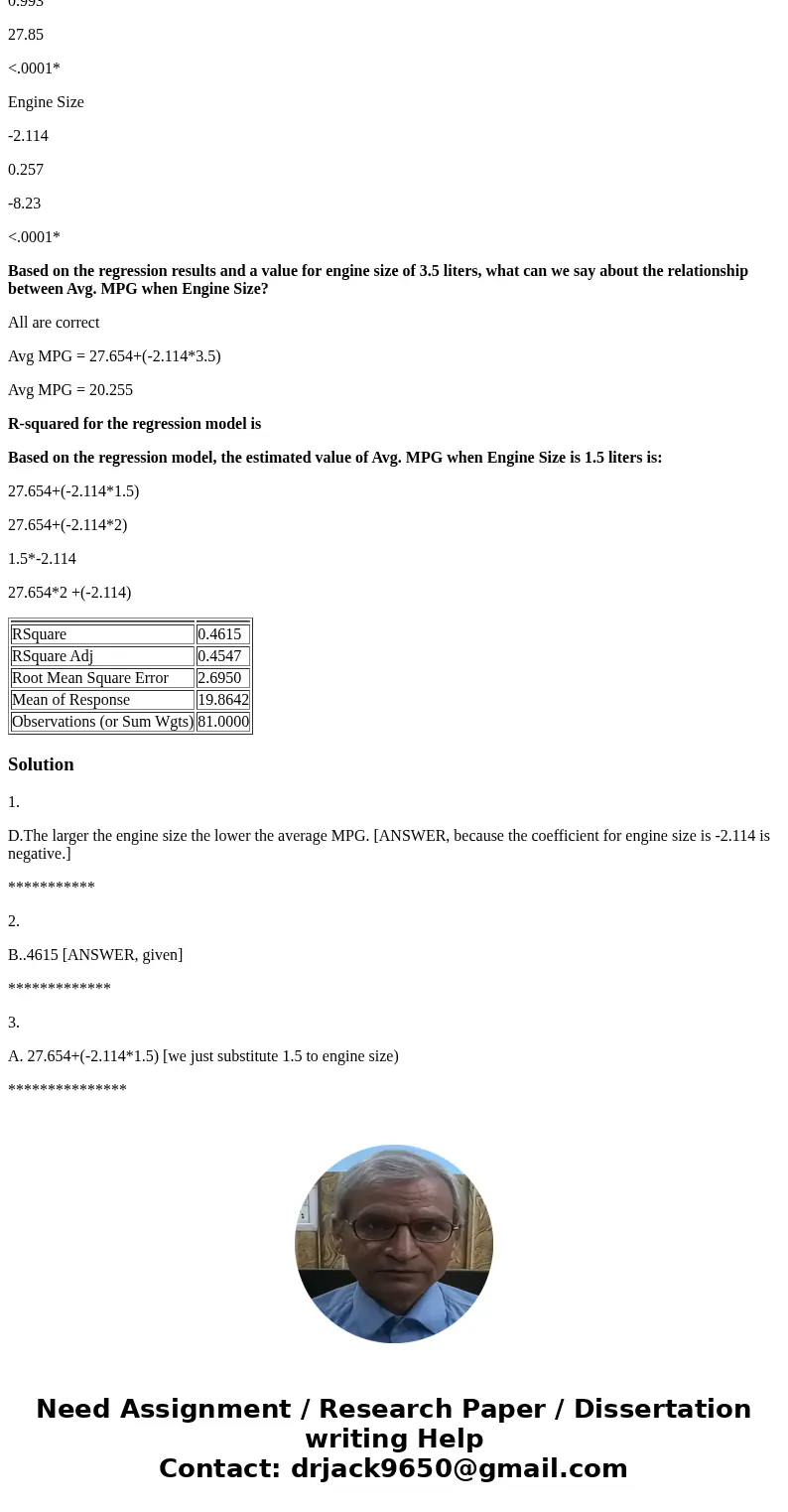The following data are measures of 81 different SUV models v
The following data are measures of 81 different SUV models vehicles. Included are the average gas mileage in miles per gallon (Avg. MPG) and the engine size in liters (Engine Size). The average miles per gallon is a weighted average of city and highway driving to reflect a 40/60 percent split. Below is the JMP Regression output for a regression of Avg. MPG on Engine Size.
Linear Fit
Avg MPG = 27.653722 - 2.1137404*Engine Size
Summary of Fit
RSquare
0.4615
RSquare Adj
0.4547
Root Mean Square Error
2.6950
Mean of Response
19.8642
Observations (or Sum Wgts)
81.0000
Analysis of Variance
Source
DF
Sum of Squares
Mean Square
F Ratio
Model
1
491.747
491.747
67.7078
Error
79
573.759
7.263
Prob > F
C. Total
80
1065.506
<.0001*
Parameter Estimates
Term
Estimate
Std Error
t Ratio
Prob>|t|
Intercept
27.654
0.993
27.85
<.0001*
Engine Size
-2.114
0.257
-8.23
<.0001*
Based on the regression results and a value for engine size of 3.5 liters, what can we say about the relationship between Avg. MPG when Engine Size?
All are correct
Avg MPG = 27.654+(-2.114*3.5)
Avg MPG = 20.255
R-squared for the regression model is
Based on the regression model, the estimated value of Avg. MPG when Engine Size is 1.5 liters is:
27.654+(-2.114*1.5)
27.654+(-2.114*2)
1.5*-2.114
27.654*2 +(-2.114)
| RSquare | 0.4615 |
| RSquare Adj | 0.4547 |
| Root Mean Square Error | 2.6950 |
| Mean of Response | 19.8642 |
| Observations (or Sum Wgts) | 81.0000 |
Solution
1.
D.The larger the engine size the lower the average MPG. [ANSWER, because the coefficient for engine size is -2.114 is negative.]
***********
2.
B..4615 [ANSWER, given]
*************
3.
A. 27.654+(-2.114*1.5) [we just substitute 1.5 to engine size)
***************



 Homework Sourse
Homework Sourse